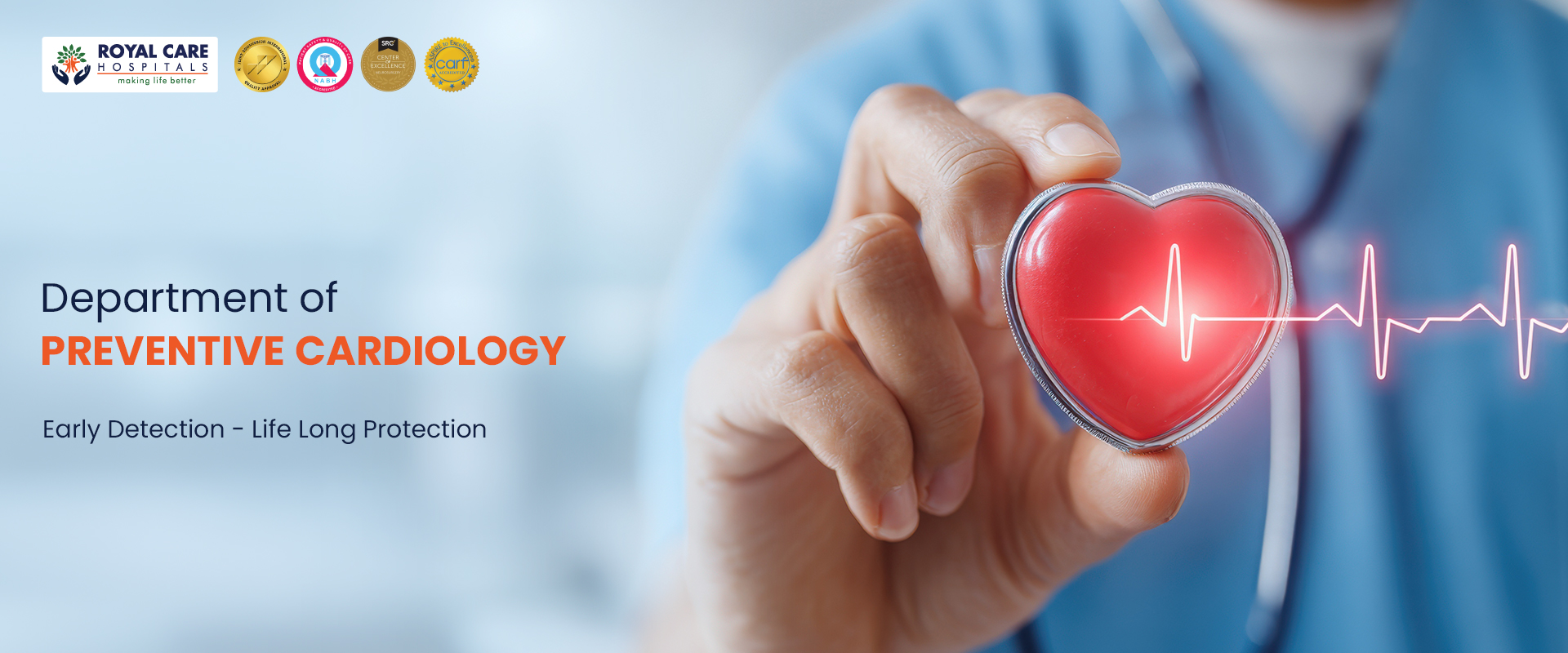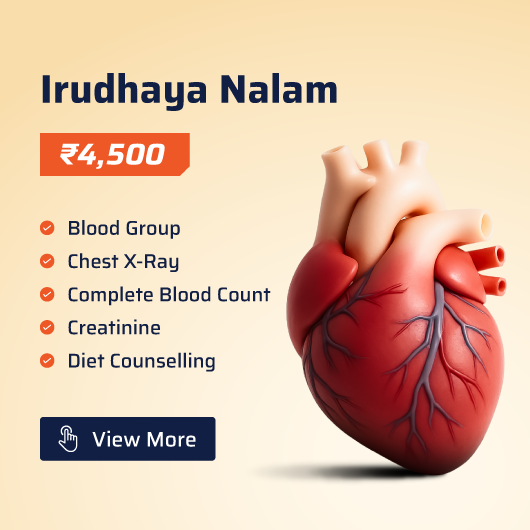Preventive Cardiology
In today’s fast-paced lifestyle, heart disease is no longer confined to the elderly, it is increasingly affecting younger populations due to stress, poor diet, lack of exercise, and undetected risk factors. At Royal Care Super Speciality Hospital, our Preventive Cardiology department is dedicated to preventing heart disease before it starts, with comprehensive Master Health Check-up programs at the core of this mission.
We believe early detection is the best protection. Our Master Health Check-ups are designed to provide a complete cardiovascular risk profile through a combination of advanced diagnostics, non-invasive imaging, and expert medical evaluation. These packages go beyond basic screening. They include tailored assessments for blood pressure, cholesterol, diabetes, obesity, and silent heart disease markers that may otherwise go unnoticed.
Whether you are an asymptomatic individual seeking peace of mind or someone with a family history of heart disease, our Master Health Check-up helps uncover hidden risks, offering a roadmap to prevent future complications. Every test result is reviewed by experienced cardiologists who work with nutritionists and lifestyle coaches to provide personalized, actionable guidance.


